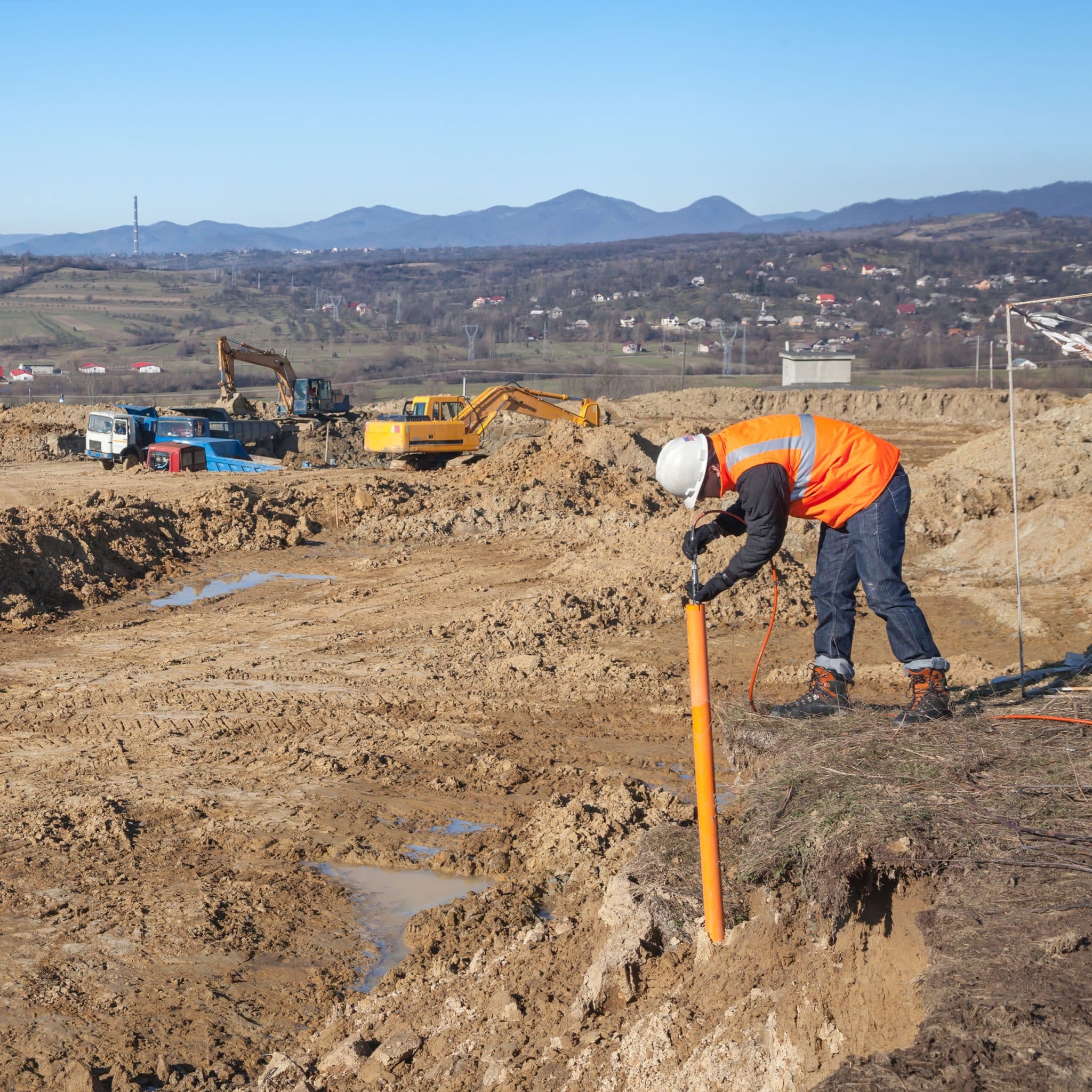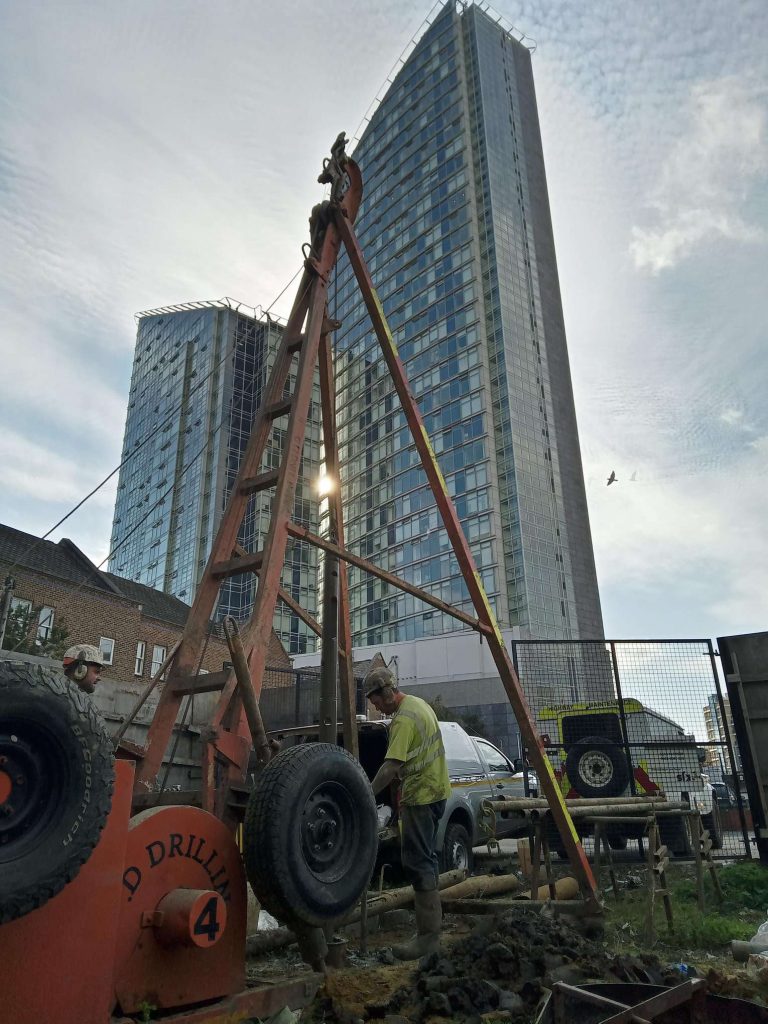Why the Geotechnical Industry Requirements Innovative Solutions Currently
Why the Geotechnical Industry Requirements Innovative Solutions Currently
Blog Article
A Thorough Summary of the Trick Obligations of Geotechnical Engineers in Website Characterization and Ground Enhancement Methods for Design Solutions
Geotechnical engineers are essential to the effective execution of design projects, entrusted with the vital obligations of site characterization and the application of ground enhancement techniques. Their job entails an extensive analysis of subsurface conditions, using various screening methods to determine dirt and rock residential or commercial properties.
Duty of Geotechnical Designers
Geotechnical engineers play a critical duty in the layout and building of framework by analyzing the habits of soil and rock underneath the surface - geotech engineer. Their obligations include reviewing subsurface problems to inform design choices that make certain architectural security and safety. By conducting detailed analyses of soil buildings, consisting of shear permeability, compressibility, and toughness, geotechnical designers give crucial data that influences the selection of suitable building products and methods
In enhancement to evaluating dirt mechanics, geotechnical engineers are tasked with determining potential dangers such as landslides, sinkholes, and ground negotiations. Their experience helps minimize risks connected with these geotechnical sensations, thus protecting both the atmosphere and public security. They likewise collaborate closely with other design self-controls, ensuring that geotechnical factors to consider are incorporated into general job design.
Moreover, geotechnical designers involve in the assessment of existing frameworks, providing referrals for retrofitting and repair services when necessary. Their comprehensive understanding of soil-structure communication is essential for the growth of lasting framework remedies. Overall, the function of geotechnical engineers is indispensable to the effective awareness of construction tasks, guaranteeing they are safe, sturdy, and certified with governing criteria.

Site Characterization Processes
Efficient website characterization processes are essential for comprehending the subsurface problems that affect task layout and execution. Geotechnical engineers employ an organized approach to gather, assess, and analyze information pertaining to dirt, groundwater, and rock attributes. This process begins with a thorough review of existing literature and archaeological site data, offering understandings right into previous site conditions and possible challenges.

Data evaluation complies with fieldwork, where engineers make use of geostatistical methods to translate findings and produce geological designs. Via persistent site characterization, geotechnical engineers lay the groundwork for effective task execution, enhancing and lessening unpredicted difficulties resource allocation.
Dirt and Rock Testing Approaches
While comprehending subsurface problems is essential, the selection of suitable dirt and rock screening methods is similarly essential for exact analysis and style. Geotechnical designers utilize a variety of testing strategies to evaluate the physical and mechanical properties of soil and rock products.
Laboratory examinations, such as Atterberg limitations, grain size evaluation, and unconfined compressive stamina tests, supply essential data on soil behavior under various dampness problems and packing situations. Click This Link These examinations help establish dirt category and forecast settlement or shear stamina qualities crucial for foundation style.
In-situ screening approaches, including Requirement Penetration Tests (SPT), Cone Penetration Examinations (CPT), and stress meter tests, allow engineers to gather data directly from the ground. These approaches use important understandings into the dirt's density, consistency, and stratification without the demand for extensive sampling.
Rock testing normally includes core tasting and research laboratory analysis to analyze residential or commercial properties like uniaxial compressive stamina and rock quality classification (RQD) Together, these soil and rock screening approaches enable geotechnical designers to make enlightened decisions relating to site-specific obstacles, guaranteeing the safety and security of engineering remedies.
Ground Enhancement Methods
Ground renovation techniques are essential for boosting the design homes webpage of dirt, therefore enhancing its load-bearing capacity and minimizing negotiation. These techniques are important in attending to difficulties offered by weak or troublesome soils, which can considerably affect the security and durability of frameworks.
Numerous ground enhancement techniques are utilized, consisting of compaction, grouting, and dirt stablizing. Compaction includes raising the density of soil through mechanical methods, which enhances its shear toughness and decreases compressibility. Grouting, on the other hand, involves injecting a liquid material right into the ground to fill up spaces and enhance dirt communication. This technique is especially effective for treating loose sands or broken rock.
Soil stablizing encompasses a series of methods, from chemical additives to mechanical treatments, targeted at enhancing the dirt's resistance to disintegration and contortion. Strategies such as lime stablizing or concrete blending change the residential properties of the soil at a bit level, enhancing its overall efficiency.
Significance of Geotechnical Evaluations
Geotechnical assessments play a vital function in the planning and style of engineering jobs, as they provide essential details regarding the subsurface conditions. Recognizing soil homes, rock formations, groundwater levels, and potential geohazards is crucial for making certain the security and safety of frameworks. These evaluations allow engineers to make enlightened decisions pertaining to website choice, layout specifications, and building and construction techniques.
The significance of geotechnical analyses expands beyond initial task stages; they are instrumental in risk monitoring and expense performance. By identifying possible problems early, such as soil negotiation, incline instability, or too much groundwater, designers can create ideal reduction approaches, decreasing the likelihood of structural failures and pricey hold-ups. In addition, these evaluations support conformity with governing requirements and enhance the sustainability of design practices.

Final Thought
To conclude, geotechnical engineers are vital to guaranteeing the safety and security and stability of engineering projects through thorough site characterization and ground renovation methods. geotechnical eng. Their methodical technique to assessing subsurface problems, combined with their recommendations for reliable ground visit the site alteration, substantially boosts soil homes and load-bearing ability. The competence of geotechnical designers not only helps with enlightened project planning yet also ensures conformity with laws and fosters efficient interaction amongst stakeholders, ultimately adding to effective design outcomes
Geotechnical designers play a crucial role in the design and building and construction of facilities by assessing the habits of dirt and rock underneath the surface area. By carrying out detailed analyses of soil buildings, consisting of shear permeability, compressibility, and strength, geotechnical designers supply vital information that affects the option of suitable building and construction materials and strategies.
In enhancement to examining dirt technicians, geotechnical designers are charged with determining potential hazards such as landslides, sinkholes, and ground negotiations. Geotechnical engineers use an organized method to collect, assess, and interpret data relating to groundwater, rock, and soil qualities. By recognizing possible concerns early, such as soil settlement, slope instability, or excessive groundwater, engineers can devise ideal mitigation methods, minimizing the chance of architectural failings and pricey hold-ups.
Report this page